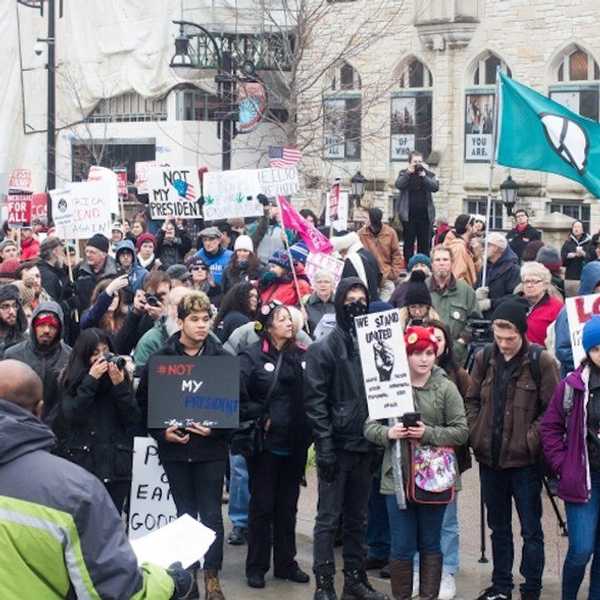Last week I attended a massive rally against Trump’s latest Executive Order which banned immigration from seven Muslim-majority countries. Thousands of angry protesters flooded Westlake Park in downtown Seattle, eager to unite against this latest act of fascism. Chants of “let them in” and “no ban, no wall” echoed off the glittering walls of Seattle’s skyscrapers, many of which house the same investment banks and corporate headquarters that have funded not only Trump’s rise to presidency but also oppressive projects like the Dakota Access Pipeline.
Despite the charged atmosphere, the crowd remained relatively peaceful. The periphery of the packed square was lined with Seattle PD officers in SUVs and on bikes. Barely twenty-four hours before the same police department had authorized the use of excessive and violent force against peaceful protesters in the SeaTac Airport, beating and pepper-spraying activists as they exercised their constitutional right to peaceful assembly. Lately, however, it would appear that the Constitution holds less and less power over this oppressive new regime headed by white supremacists.
Trump’s immigration ban, as well as violence against its protesters, have sent shockwaves of anger and pain throughout communities nationwide. Those who addressed the crowd on Sunday spoke of their fear and hurt as they realized that they, their families, and their loved ones would be living in tremendous danger following the ban. I have heard people––usually white, usually coming from a background of extreme privilege––calling for love and understanding of the ‘other side.’ Those who choose to take radical action against fascism are decried as ‘senselessly violent’, accused of being criminals. No, I do not advocate senseless violence. But it has become apparent that taking a centralist position (especially for those with white, bodily, and economic privilege) is no longer adequate if we wish to fight the alt-right’s rise to national power. Yes, we need love inside our movement. We need to love those who who are marginalized, terrorized, and diminished by the Trump administration’s fascism. But to suggest that anyone––especially those most deeply affected by it––extend the same love to Trump and his administration? To their supporters, who preach Nazism, white supremacy, and rampant misogyny, queerphobia, and racism? This privileged centralist sentiment is extremely harmful, even outright toxic. We do not need love and sympathy for fascists. We need resistance against these bigoted, nationalistic ideals. It is only through cooperative community engagement in the fight against such hatred and intolerance that we can find liberation for all.





















